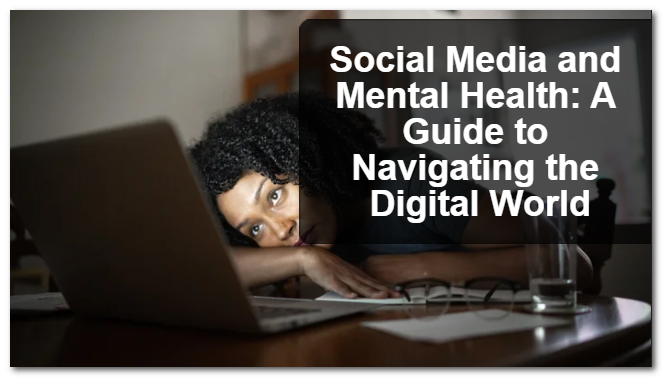The Role of Social Media in Our Connected World
Social media has become an integral part of our daily lives in today's interconnected society. Platforms like Facebook, Instagram, Twitter, and Snapchat enable us to connect with friends, share experiences, and access a wealth of information. However, the increasing popularity of social media has raised concerns about its impact on mental well-being. This article delves into the relationship between social media consumption and mental health, highlighting potential negative effects and offering suggestions for maintaining a healthy balance in the digital age.
{getToc} $title={Table of Contents}
While social media brings numerous benefits, it is essential to acknowledge its potential influence on mental health. Extensive research has explored this connection, uncovering various adverse consequences associated with excessive social media usage.
Potential Negative Effects of Social Media on Mental Health
Excessive social media use can have various detrimental impacts on mental well-being. Here are some key concerns associated with spending too much time on social media:
Feelings of loneliness and social isolation:
Paradoxically, excessive social media usage can contribute to increased feelings of loneliness and isolation. Constant comparisons to curated images of others' lives can lead to a sense of inadequacy and unhappiness.
Negative body image and self-esteem:
Social media platforms often feature images that promote unrealistic beauty standards, leading to body dissatisfaction and diminished self-esteem. Prolonged exposure to these visuals has been linked to the development of eating disorders and other body image concerns.
Cyberbullying and online harassment:
The anonymity of the digital world can foster cyberbullying and online abuse. Victims of such actions often experience anxiety, sadness, and a decline in self-esteem.
FOMO (Fear of Missing Out):
Social media can intensify the fear of missing out on social events and experiences. Constantly monitoring others' activities can induce anxiety and a sense of alienation, even if the reality is different.
Sleep disruptions:
Engaging with social media before bedtime can disrupt sleep patterns. The blue light emitted by screens interferes with the production of melatonin, a hormone that regulates sleep, leading to difficulties falling asleep and poor sleep quality.
It is important to be mindful of these potential negative effects and strive for a healthy balance in social media usage to safeguard our mental well-being.
While social media's negative impacts on mental health are concerning, it's essential to remember that mindful usage can help individuals navigate the digital realm effectively. Here are some tips for achieving a healthy balance:
Set Limits and Boundaries:
Establish time limits for social media use and adhere to them. Utilize tools to track your usage and receive alerts when you exceed your allotted time.
Unfollow Triggering Content:
Take control of your feeds by unfollowing accounts that consistently make you feel inadequate or unhappy. Muting or blocking those who engage in negative behavior can also improve your online experience.
Create a Positive Online Environment:
Surround yourself with uplifting and enriching content. Follow accounts that promote self-acceptance, mental health awareness, and personal growth. Engage in meaningful discussions and foster connections with like-minded individuals.
Practice Digital Detox:
Schedule regular periods of complete social media disconnection. Engage in activities that bring you joy, such as pursuing hobbies, exercising, or spending time with loved ones. Use this opportunity to recharge and focus on your well-being.
Be Mindful of Your Emotions:
Pay close attention to how social media affects you. If you find yourself experiencing negative emotions, step back and consider whether specific platforms or interactions are beneficial to your well-being. Prioritize your mental health and practice self-compassion.
Seek Help Offline:
Remember that social media is not a substitute for real-world interactions. Cultivate relationships with friends, family, and colleagues outside the digital sphere. Engage in face-to-face connections and seek support from trusted individuals whenever needed.
Undoubtedly, social media has revolutionized the way we connect and share information. However, it's crucial to acknowledge and address its potential negative impact on mental health. By implementing responsible usage strategies, establishing boundaries, and prioritizing self-care, individuals can manage the digital world while maintaining their mental well-being. Striking a balance between virtual and offline relationships is essential to ensure that social media remains a positive and enriching part of our lives.

